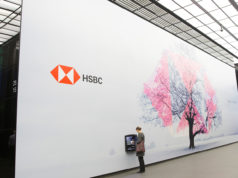UK Regulator FCA Warned Stock Trading Apps of Gamification Features, Frequent Notifications of Market News, Points, Badges & Celebratory Messages to Promote Gambling-Like Investor Trading Behaviours
26th November 2022 | Hong Kong
United Kingdom (UK) regulator Financial Conduct Authority (FCA) has warned stock trading apps operators of gamification features to promote gambling-like investor trading behaviours, including frequent notifications of market news, earning points & badges and sending celebratory messages. UK FCA: The FCA has found that consumers using apps with these kind of features were more likely to invest in products beyond their risk appetite … … customers using such trading apps are exposed to high-risk investments, and that some appear to exhibit behaviours similar to problem-gambling.” UK FCA Executive Director of Markets Sarah Pritchard: “Some product design features could be contributing to problematic, even gambling-like, investor behaviour. We expect all firms that offer stock trading to consumers to review and, where appropriate, make improvements to their products based on these findings. They should also ensure they are providing support to their customers, particularly those in vulnerable circumstances or those showing signs of problem gambling behaviour.”
“ UK Regulator FCA Warned Stock Trading Apps of Gamification Features, Frequent Notifications of Market News, Points, Badges & Celebratory Messages to Promote Gambling-Like Investor Trading Behaviours “
UK Regulator FCA Warned Stock Trading Apps of Gamification Features

The Financial Conduct Authority (FCA) has warned stock trading app operators to review design features, including those with game-like elements, which risk prompting consumers to take actions against their own interest.
21/11/22 – Features include sending frequent notifications with the latest market news and providing consumers with in-app points, badges and celebratory messages for making trades. The FCA has found that consumers using apps with these kind of features were more likely to invest in products beyond their risk appetite.
Alongside its warning to app-operators, the FCA has published research that raises concerns that customers using such trading apps are exposed to high-risk investments, and that some appear to exhibit behaviours similar to problem-gambling.
Whilst gamification can be used to engage consumers positively, the FCA found it being used in ways that may mislead consumers or lead to poor outcomes and problem behaviours.
Sarah Pritchard, Executive Director of Markets at the FCA, said: ‘Some product design features could be contributing to problematic, even gambling-like, investor behaviour. We expect all firms that offer stock trading to consumers to review and, where appropriate, make improvements to their products based on these findings. They should also ensure they are providing support to their customers, particularly those in vulnerable circumstances or those showing signs of problem gambling behaviour.’
The FCA intends to do further research into trading app use and design features, in particular to understand some wider financial vulnerabilities for users of these apps, such as whether they borrow to invest and the scale of any losses. The FCA’s 2022 Financial Lives Survey found 9% of all adults with investments have borrowed to invest and 49% of these would not have been able to make the investment without doing so.
To ensure customers are being treated fairly and ahead of the new Consumer Duty coming into force next year, all firms should be reviewing their products now to ensure they are fit for purpose.
The Consumer Duty stipulates that firms must design services so that consumers can make effective, timely and properly informed decisions about financial products and services.
Gaming trading: how trading apps could be engaging consumers for the worse (UK FCA)
This article summarises research undertaken by Lucy Hayes, Stephen O’Neill, Max Spohn (during his time working for the FCA) and Cherryl Ng.
You may be familiar with the jumping green owl celebrating your completion of a Duolingo language lesson. Or perhaps you compete against your friends on Strava to run the most miles in a month. These are all examples of gamification – the use of game design elements to make tasks more engaging and attractive.
With an unprecedented shift towards digitalisation in financial services during the Covid-19 pandemic, policymakers are increasingly concerned that online businesses can manipulate consumers in new ways and more easily than ever before. The FCA’s new consumer duty calls out harmful ‘sludge’ design practices – excessive frictions that prevent consumers making decisions in their own interest. And its 2022/3 business plan sets out its commitment to ‘shaping digital markets to achieve good outcomes’.
Gamification may seem like an innocuous cousin of sludge, but our research into its use in trading apps suggests it can sometimes play a role in driving poor outcomes for consumers.
The rise in popularity of trading apps
Trading apps allow retail investors to trade directly and easily in a range of products, including fractional shares and high-risk investments such as crypto assets and contracts for difference (CFDs). 1.15m new accounts were opened by 4 trading app firms in the first 4 months of 2021, almost double the amount opened with all other retail investment services combined. Many of these customers were new to investing and younger than traditional investors.
We evaluated firms’ use of digital design features as part of a wider FCA assessment of these apps. This evaluation work supports the aim of our Consumer Investment Strategy for a consumer investment market where consumers can invest with confidence, understanding the risks they are taking and the regulatory protections provided.
It also supports the cross-cutting commitments set out in our three year strategy published this year, including putting consumers’ needs first and shaping digital markets to achieve good outcomes.
Evaluation of design features which may be linked to consumer harm
We selected several firms to demonstrate their apps to us, and it was clear that an extensive behavioural design toolbox had been used to create them. Many of the features used give us cause for concern, based on the existing behavioural theory and literature. We give some examples here.
We found gamification techniques that use positive reinforcement immediately after a trade, such as celebratory messages and falling confetti (Figure 1). We also found the use of points, badges and rewards for undertaking certain behaviours and ‘leader boards’ that rank people based on these rewards (Figure 2). We are concerned that these positive reinforcements may encourage people to trade more frequently or make investment choices that they otherwise wouldn’t. For example, A recent study found that celebratory messages and badges can lead people to take on more risk when investing.
We found frequent push notifications with the latest market news on stock movements (Figure 3) and lists that draw attention to real-time price changes by flashing red and green, as well as lists of stocks that had seen the largest price movements in the last 24 hours. We are concerned that giving information to consumers in this way may lead them to pay attention to spurious information and make investments which are not in their interests. Research has found that push notifications can stimulate people to trade in a riskier way using higher leverage and trading larger amounts, with the biggest impact on younger and less experienced investors. Displaying ‘leader boards’ for stocks that have seen the largest price changes in the last 24 hours have been shown to drive consumers to pay attention to and trade on the basis of this information, making poorer returns as a result.
Other features are likely to influence consumer choice such as how much to invest. For example, we found that investment amounts and the amount of leverage offered were sometimes defaulted to high amounts (Figure 4). There is extensive literature showing that people are much more likely to stick to a default.
We are also concerned that the app features may blur the lines between online investing and gambling-like behaviours as suggested by another study. Previous FCA research has shown that for many younger, new investors, emotions such as thrill and excitement are key drivers for investing. This might be especially heightened for investing in riskier investments such as cryptoassets and CFDs.
We set out to understand how far users of these apps might be showing these behaviours and getting these outcomes.
Our research
We undertook a survey with over 3,000 app users, sampling customers of 4 trading apps. We also included participants from a trading app of a more traditional investment platform, which does not have the features we were concerned about, as a comparator. We also undertook in-depth qualitative interviews with a sample of 20 app users.
We used a method from academic literature, using a hypothetical investment decision to categorise participants into high, medium or low risk aversion or not risk averse. We compared these preferences to their reported investment choices. For example, if they chose a high-risk investment (such as cryptoassets) but had a low or medium risk appetite, we classified them as engaging in investing that was potentially beyond their risk appetite.
Gambling behaviour in a population is often assessed using the Problem Gambling Severity Index (PGSI). It asks a range of questions around problematic behaviour such as ‘Have you bet more than you could really afford to lose?’ With academic advice, we adapted this in our survey for investing. We grouped respondents according to the degree of problematic behaviour they report. Scores of over 8 on the PGSI are classed as ‘problem gambling’, with those scoring between 3 and 7 classed as ‘at-risk’. Although our research looked at investments, we use the term ‘problem gambling behaviour’ here for consistency with previous studies.
We also asked a range of questions to understand wider investing behaviours and vulnerabilities such as how frequently they traded, their financial resilience and financial literacy.
See full research here – research
Sign Up / Register
Caproasia Users
- Manage $20 million to $3 billion of assets
- Invest $3 million to $300 million
- Advise institutions, billionaires, UHNWs & HNWs
Caproasia Platforms | 11,000 Investors & Advisors
- Caproasia.com
- Caproasia Access
- Caproasia Events
- The Financial Centre | Find Services
- Membership
- Family Office Circle
- Professional Investor Circle
- Investor Relations Network
Monthly Roundtable & Networking
Family Office Programs
The 2025 Investment Day
- March - Hong Kong
- March - Singapore
- July - Hong Kong
- July - Singapore
- Sept- Hong Kong
- Sept - Singapore
- Oct- Hong Kong
- Nov - Singapore
- Visit: The Investment Day | Register: Click here
Caproasia Summits
- The Institutional Investor Summit
- The Investment / Alternatives Summit
- The Private Wealth Summit
- The Family Office Summit
- The CEO & Entrepreneur Summit
- The Capital Markets Summit
- The ESG / Sustainable Investment Summit

































